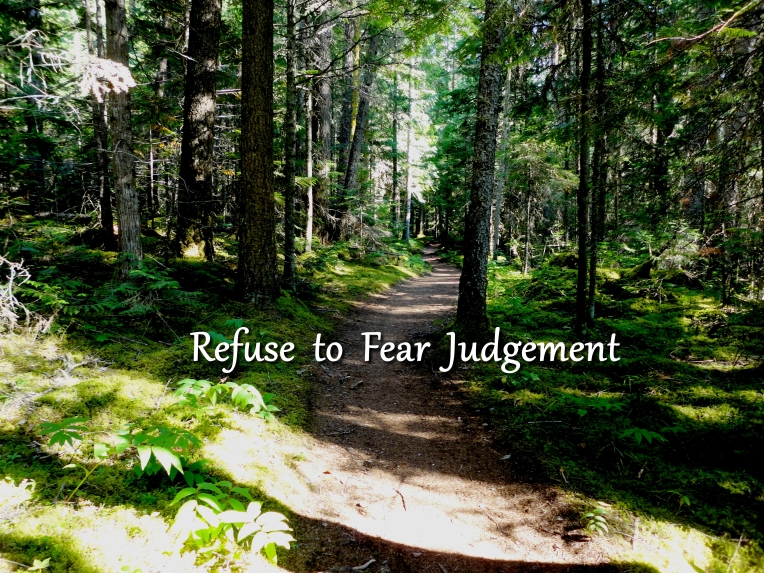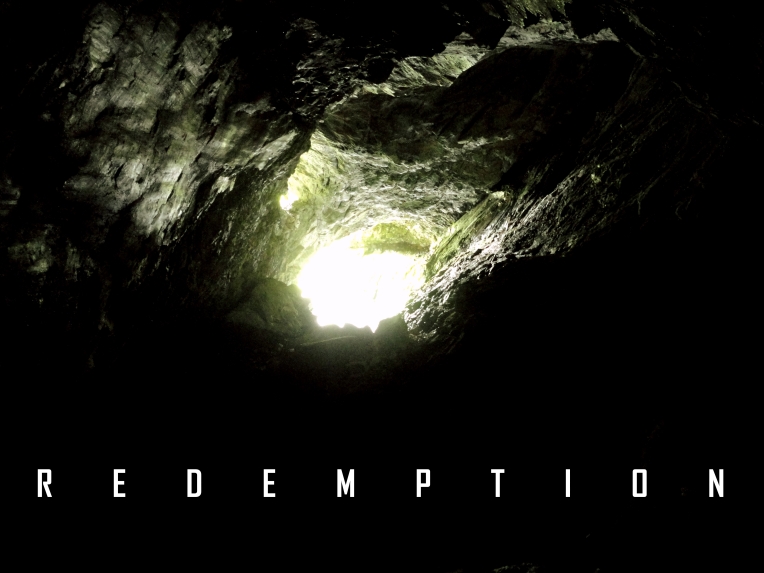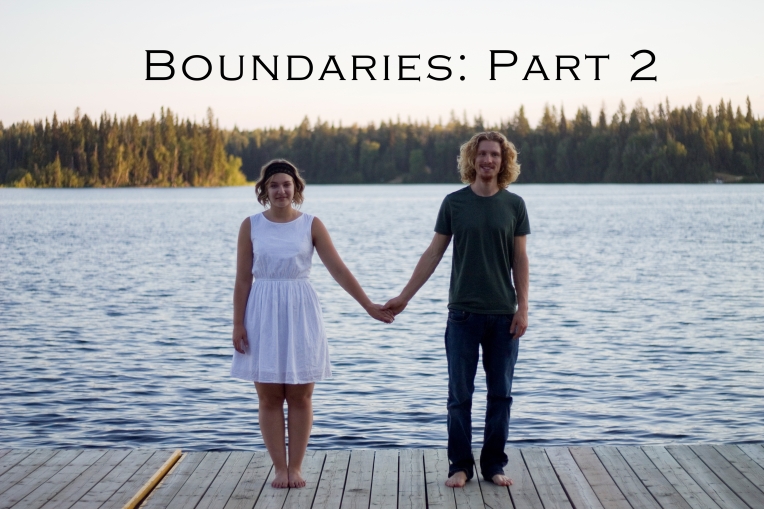I have been overwhelmed this week by comment threads. Between more yoga pants/modesty pieces, countless Fifty Shades of Gray articles, and the hordes of women on social media, I should have known better than to go perusing through those deep dark places. But, because I’ve been able to find pieces of wisdom hidden among the muck on occasion, or evidence of more general cultural attitudes, I still did a little bit of looking. This week I’ve recognized a strong trend of defensiveness, especially within the comments on articles about “Christian issues.”
“Don’t judge me.” “You have no right to judge me.” “You don’t know my relationship with God.” “That’s your opinion, I don’t have to share it.”
Sound familiar?
When I read these, I hear the World.
If you read through any secular blog or media piece, it is likely you will encounter something designed to normalize what people may be offended by, or think is wrong. There is this huge movement against judgement in areas of employment, appearance, pregnancy, sexuality, and gender expression. Basically within any area where you could have a different opinion than someone (especially one based on religious values), they are trying to build an “anti-judgement” space.
This really scares me, especially when I see it happening within Christian media.
I understand. Being judged is the thing we seem to fear most. We do our best to avoid it by trying to follow all the rules and avoid judgement (my preferred method), or by proclaiming that none of our choices deserve to be judged. Judgement attacks the places we are vulnerable. It targets our insecurities.
What causes our defensive reactions?
It is the truth. Whether or not the person addressing us is speaking truth, the truth in our hearts recognizes the voice of judgement and recoils. We, as humans, are meant to be judged.
Since the beginning, it has been clear that sin is a part of who we are as people. Wrong priorities, skewed morals, and dark ambitions are just a few of the things that we can’t shake off on our own. Whether we acknowledge it or not, there is some corner in our hearts that knows the Voice of Truth, and is terrified of it. When we feel judged, we are being punched there.
I know, I spent most of my life fearing judgement. Even though I was generally confident, I feared judgement by friends, and began hiding parts of who I was. I feared judgement from a God who could see the sins that no one else could, and I became more and more attached to behaviours and habits that would make me seem better from the outside. I tried to fix myself, to put myself in a place where I could no longer be judged, but the harder I tried the worse it got. Ask my mother, I am someone who easily becomes defensive, always have been. But, I’m learning what that really means for the condition of my heart. When I become defensive, it is a symptom of the pride I’ve built up in my image and abilities. It shows that I may not actually have confidence that I am pursuing truth in a decision or a position that I’ve taken. It shows a struggle that I may be ignoring.
In the past couple of years, I’ve learned something. It wasn’t a sudden realization but a very drawn out process. Looking back, I can see that when I gradually began to understand grace, and to personally, relationally pursue Christ, it went hand in hand with being able to start letting go of my fear of judgement.
Have you heard this story?
There is a King. He rules over all the land, but there was a time in the past when He had no one with whom to share the beauty of life. But, The King had a plan. He gathered up the dust of the Earth, and breathed His life into it. “The Man came alive-a living soul!” The King also gave the Man a partner to work with and love, the Woman.
Now, the Man and the Woman cared for the Earth, and they lived with The King in true community. But the Man and the Woman were faced with a problem. The King had given them a great gift, called Choice. It was a beautiful gift, but they weren’t sure what it meant. They thanked The King, and He showed them how they were meant to live and use their Choice. When the Man and Woman found Temptation however, they used Choice in a way The King had asked them not to. They opened the gate of the Earth and allowed Shame to enter, and they hid from The King, for they knew He was also The Judge, and they feared Judgement.
Because The King ruled over all the land, He knew immediately that Shame had entered His Kingdom. It broke His heart, and He reached out to the Man and Woman. They could no longer live with Him in true community, but He clothed them and sent them on their way unharmed, the beginning of His People. The King knew that it was time to put the next part of His plan into action.
Throughout the following ages, The King tried to love His People. The monster Shame had brought with it Pride, and Greed, Power, and Immorality. When these beasts combined forces, they lured His People away from Him, and built walls of Defensiveness around their hearts. His People did not allow The King to love them, but His plan was still in motion.
Some of His People began to have dreams, and to prophesy that they were going to be rescued from the monsters attacking them. Those who listened lived with hope that The King would rescue them, but they went a long time without hearing from Him, or knowing what He was going to do.
Then one day, The King gave them a piece of Himself. He put His heart into a Woman, in the form of a Child. This Child grew up to become a Warrior. He began teaching His people how to fight Shame and his fellow monsters. He showed them that Truth was the way to free themselves. Those who had built up Defensiveness around their hearts however were unable to see the Warrior as anything but a threat.
Some of those who had Defensiveness had tried to live as they thought The King wanted them to. They followed all the laws of the land, even creating their own in order to protect themselves from Shame. These were those taken by Pride. There were others who tried to cheat The King, these were taken by Greed. There were still others who ignored The King, these fell to Immorality and Power. Those taken by Shame continued to hide from the Warrior, while the rest spat in His face.
Those who served Pride were offended by the Warrior, and began plotting to kill Him. They tricked those serving Power into executing Him. What they didn’t know, was that this action was the climax of The King’s plan. Though His People thought they had killed His heart, The King knew that He had defeated Shame.
You see, The King’s heart cannot be killed. In The King’s heart was hidden a second gift for His People, Freedom. When Pride had the Warrior killed, it broke The King’s heart, but it also released Freedom, which healed the heart, and began seeping into the Earth. It welled up as springs of Living Water for His People to find throughout the rest of time.
Those who find the Living Water have the walls around their hearts, their Defensiveness, dissolved. Their service to Shame ends, and they are no longer subject to judgement. They find Freedom, and are restored, welcomed back into true community with The King.
I have bathed in that Living Water. I should no longer fear judgement, if I have truly accepted the grace offered by Christ. 1 John reminds us what it means to Live in the Light:
5 This is the message we heard from Jesus and now declare to you: God is light, and there is no darkness in him at all. 6 So we are lying if we say we have fellowship with God but go on living in spiritual darkness; we are not practicing the truth. 7 But if we are living in the light, as God is in the light, then we have fellowship with each other, and the blood of Jesus, his Son, cleanses us from all sin.
8 If we claim we have no sin, we are only fooling ourselves and not living in the truth. 9 But if we confess our sins to him, he is faithful and just to forgive us our sins and to cleanse us from all wickedness. 10 If we claim we have not sinned, we are calling God a liar and showing that his word has no place in our hearts.
If we are living in the light, we will seek the life that Christ offers us in him. We will understand that while we are sinners, that it is not our sin that he sees, but he sees who we can be in him. When we are living in this truth, it will destroy the defensiveness, our fear of judgement.
If others do not agree with my choices, I should not get defensive (difficult as it may be), but remember that what truly matters is that my choices line up with God’s standards. I should remember that judgment is not something I should fear any longer, as long as I keep righteousness and holiness as my goal.
While not all comments are made from a spiritually healthy place, especially on the Internet, we should seek to be a part of communities where we can receive accountability and perspective within healthy, personal relationships. It is in those spaces we are called to speak life and truth in the choices we make as the Body of Christ. We cannot reject the comments of others, for when we accept Christ’s grace, live with humility, and refuse to fear judgement, the comments of others can reveal attitudes and standards that don’t line up with the way we are called to live. They can also encourage us as we pursue attitudes that do reflect Christ. People cannot judge our eternal fate, don’t give them power that they aren’t given in the first place. BUT, we are called to live within vulnerable, accountability with our brothers and sisters.
Fear of judgement is an attitude of the world, refuse to let yourself be chained by it.
The story is mine, written in a style similar to Stephen’s stories. I hope to post mores stories (mine or his) in the future. Feedback would be greatly appreciated!





